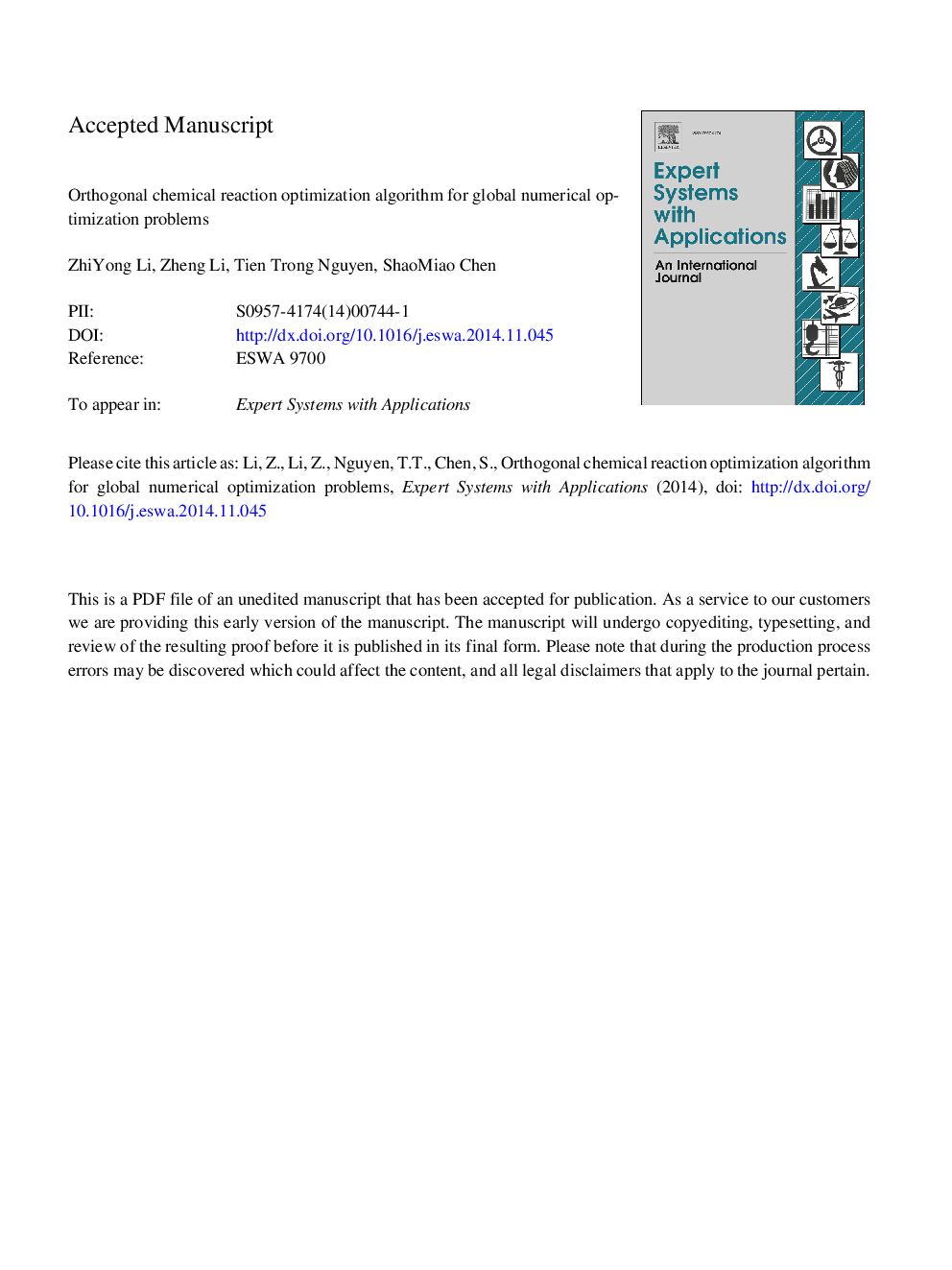| Article ID | Journal | Published Year | Pages | File Type |
|---|---|---|---|---|
| 10321876 | Expert Systems with Applications | 2015 | 31 Pages |
Abstract
Chemical reaction optimization (CRO) is a newly proposed, easy to implement metaheuristic inspired by the phenomena between molecules in chemical reactions. However, CRO behaves like a random search to traverse the whole solution space, which could confine the algorithm's search ability. The orthogonal experimental design (OED) method is a robust-design method that can obtain the best combination levels for different factors with a small number of experiment samples based on orthogonal array, thus possesses systematic reasoning ability. In this paper, OCRO, a new method based on CRO and OED, is proposed. This hybrid technique creates new molecules not only by two local search operations in CRO but also incorporates quantization orthogonal crossover (QOX) to serve as a global search operator. OCRO is tested on a set of 23 benchmark functions and compared with variants of CRO, ABC and OXDE, which is also based on the orthogonal method. The computational results show that our framework cannot only find optimal or close-to-optimal solutions but can also obtain more robust results with faster convergence speed in most parts of the experiment, especially for high-dimensional functions.
Related Topics
Physical Sciences and Engineering
Computer Science
Artificial Intelligence
Authors
ZhiYong Li, Zheng Li, Tien Trong Nguyen, ShaoMiao Chen,
